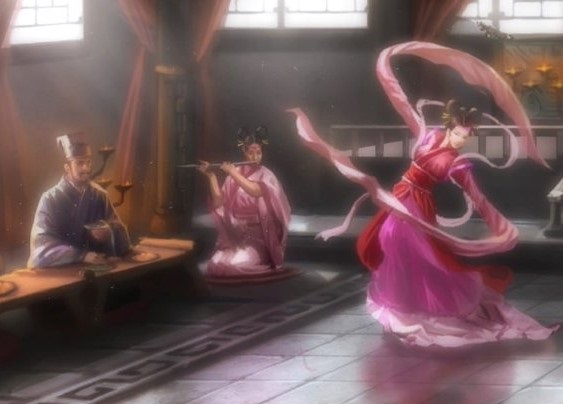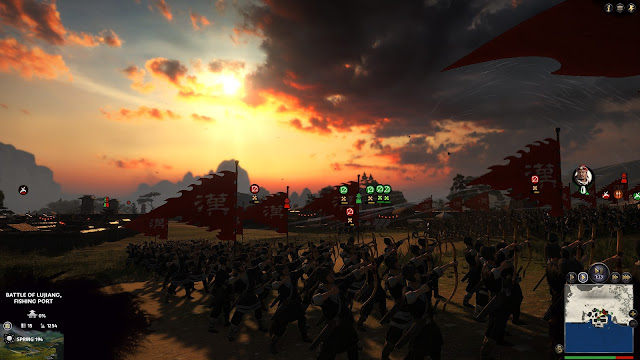Article by Matt S.
SEGA and Creative Assembly have pulled off something truly remarkable. Total War: Three Kingdoms has become the most successful title in the Total War series, and a massive hit for what remains an incredibly niche genre. With over 150,000 concurrent players at once at a point, Three Kingdoms has achieved what most strategy game developers would not dare to even dream about.
For my part I absolutely love the game… and ended up spending most of the weekend with it, even after moving past the review phase of my time with the game. In most instances, how much time I find for a game drops off rapidly once the review is published. Too many other things to play and write about. It’s only those few I truly love that I continue to play obsessively, and Total War: Three Kingdoms is certainly one example of that.
However, I have noticed a bit of rhetoric around the game that I’d like to challenge. I’m seeing a lot of people use words to the effect of “finally, a strategy game set in the Three Kingdoms era!” To those people I’d like to say this: have you considered giving Koei Tecmo’s Romance of the Three Kingdoms series a spin? Particularly the most recent one; Romance of the Three Kingdoms XIII? Koei’s up to number 13 for a reason, after all. This series might be super niche within a niche genre, but for anyone interested in the actual history and era that these games use as the base material, its arguably a much more satisfying experience.
Total War and RoTK are very different games, of course, but they are both from the strategy genre, and are both set within the context of the epic novel that they pull at least some of their name from. Total War: Three Kingdoms is Total War with the Three Kingdoms aesthetic and setting pasted over the top of it; it’s that same blend of 4X and tactical battlefield action that we’ve seen in many other games before, and will see in many since. Creative Assembly is on to a good thing with that particular franchise, so it should come as no surprise that the team doesn’t rock the boat too much with each new title, but what makes Three Kingdoms a game set in ancient China has more to do with aesthetics than anything else.
By contrast, Romance of the Three Kingdoms really pushes hard to base the game around the narrative. Key events are full cut scenes, often with player decisions thrown in that can upend the course of the real history. There’s a greater focus in showing of the character art, and building the personalities of each major player through the era.
On the other hand, while there is some tactical battlefield stuff in RoTK, it’s much, much simpler than you’ll find in Total War. This game’s strategic focus is squarely on building up an empire, and the various cities and locations that you hold within. Beyond that, Romance of the Three Kingdoms’ problem is that it’s incredibly inaccessible and obtuse. Over time, as you learn its various systems, from the dozens of menu options involved with controlling your empire, through to the completely alien thinking that went into a “letters” and relationship system, it will start to make sense. Getting there is a job though, and RoTK certainly isn’t one for genre newcomers because it requires a great deal of patience and persistence to start to draw anything back out of it.
Total War, on the other hand, is very accessible for something so complex. The interface has been refined to the most complete degree, and it’ll only take an hour or two play for you to be completely comfortable with how the economy works, how cities are built up, and how the battlefield tactics operate. It’s also a much prettier game in comparison to RoTK in regards to everything but the character portraits, and that really does matter from an accessibility point of view. If you can enjoy sweeping vision of armies battling it out in the early evening, you’re going to be far more incentivised to keep playing along than if you’re watching ugly blocks that represent soldiers sliding across a flat map of China.
That’s not to say RoTK doesn’t have its own appeal once you get familiar enough with it. The way that it represents a tabletop military simulation, with you directing blocks that represent soldiers, has an appeal to the most hardcore of strategy fans. The character portraits are also gorgeous, and because RoTK does such a good job as a storytelling experience, you relate much better to those characters than you do the relatively static pieces that occupy Total War’s chess board.
It’s really that storytelling side of things that helps to set Romance of the Three Kingdoms apart, for my mind. Because the team at Koei Tecmo are so committed to retelling the stories of the era, it feels like everything within the game has been built from ground up to accommodate the storytelling. You only need to look at how completely different Koei’s other strategy property – Nobunaga’s Ambition – is to see this in motion. I love Total War: Three Kingdoms because I love Total War. But if the history side of the equation interests you, then I strongly recommend that you play Romance of the Three Kingdoms as well. In fact, play them side-by-side and get a real feel for how two very different, but equally talented developers might undertake something as challenging as a 2,000 page historical epic. That book makes War and Peace look like a breezy read, and it’s truly amazing how both developers have distilled such quality games out of it.
– Matt S.
Editor-in-Chief
Find me on Twitter: @digitallydownld
Please help keep DDNet running: Running an online publication isn’t cheap, and it’s highly time consuming. Please help me keep the site running and providing interviews, reviews, and features like this by supporting me on Patreon. Even $1/ month would be a hugely appreciated vote of confidence in the kind of work we’re doing. Please click here to be taken to my Patreon, and thank you for reading and your support!









